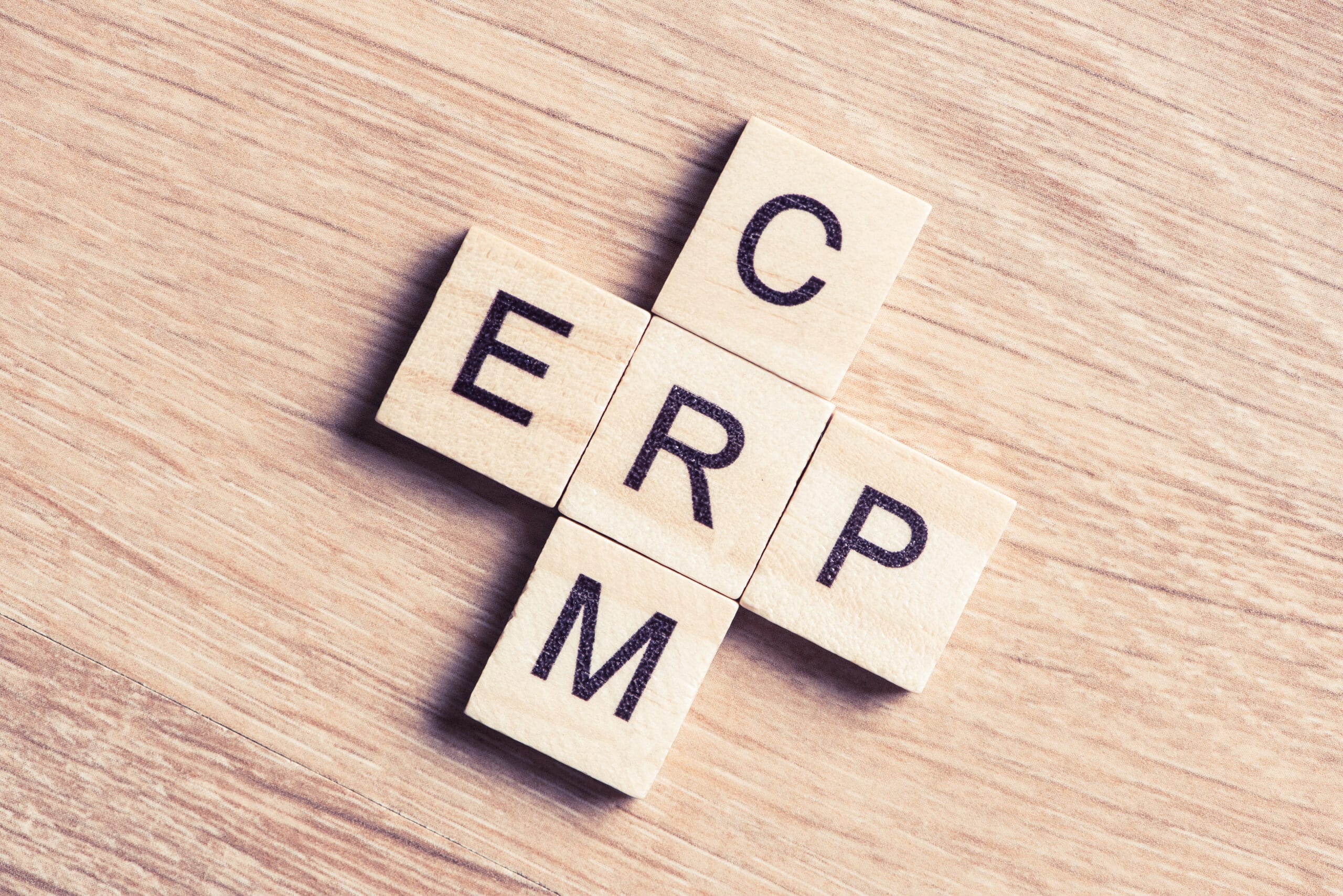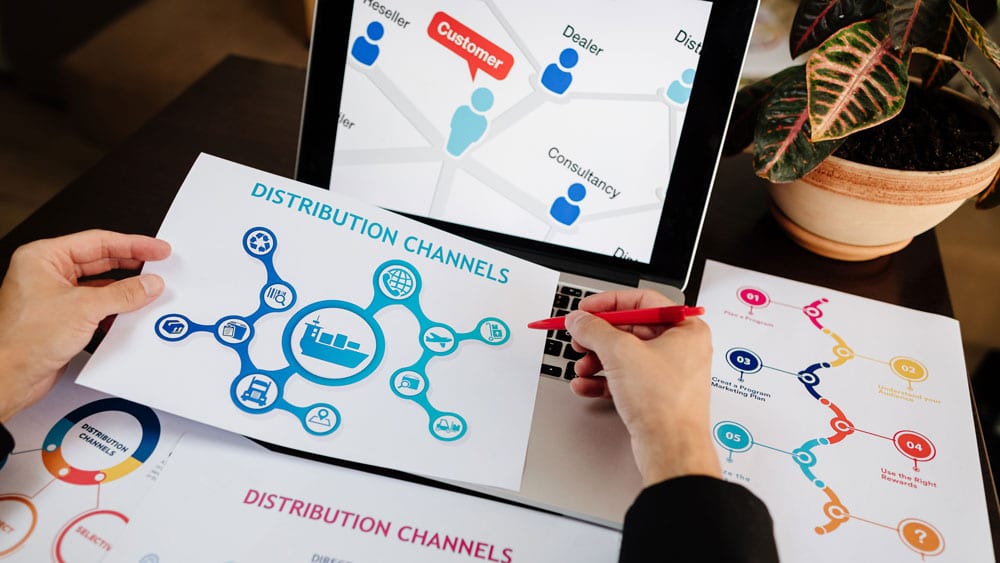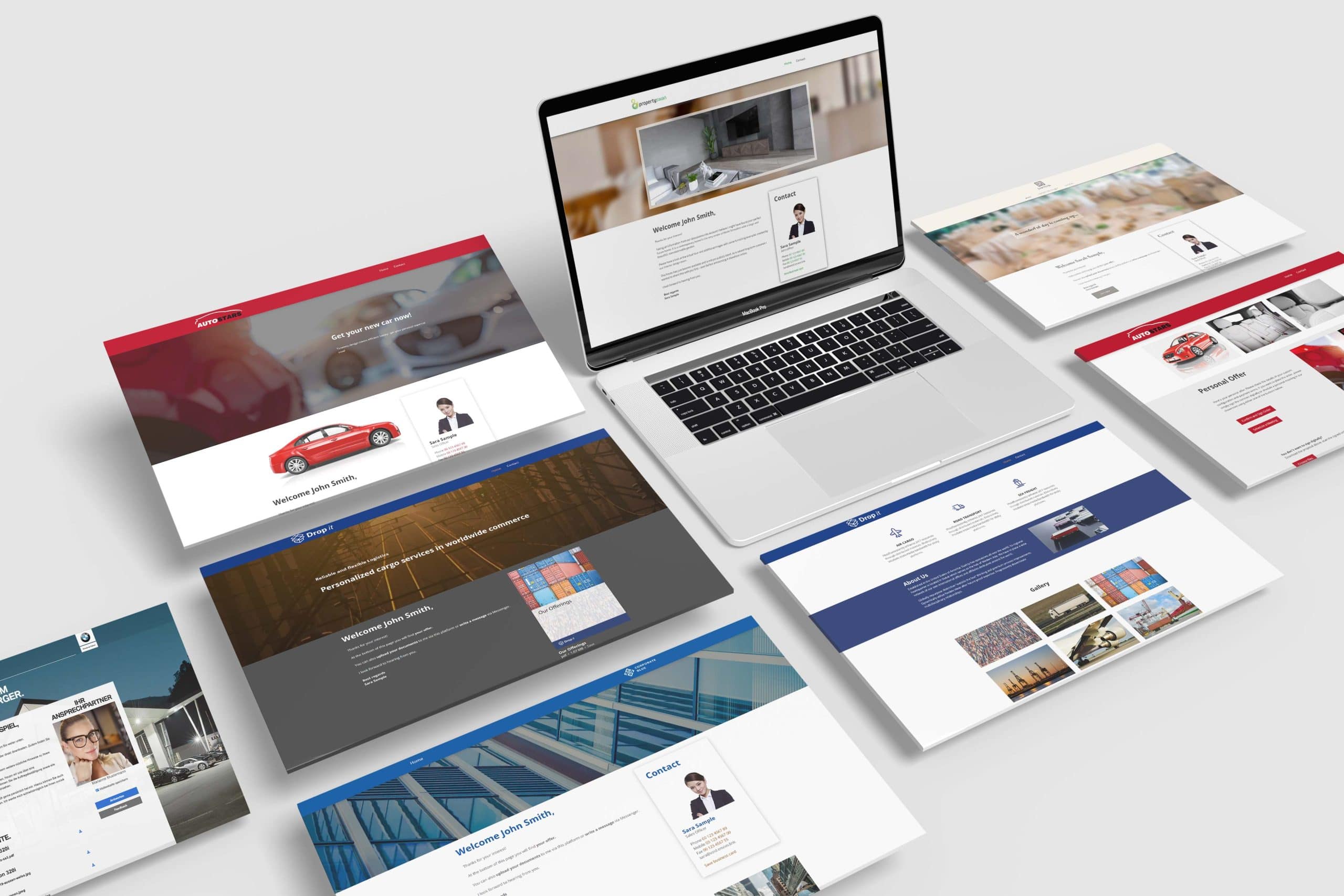CRM vs. ERP: Get the best from both worlds
Working efficiency across departments is becoming increasingly crucial for companies. There are various different approaches to streamlining activities within a business. CRM and ERP systems are two of the most popular concepts and are aimed at optimising processes across company divisions. Both systems are based on the idea of facilitating an interconnected and unobstructed flow of information to ensure smooth operations, analysis and exchange.
But what is CRM or ERP exactly? Let’s take a closer look!
What is CRM?
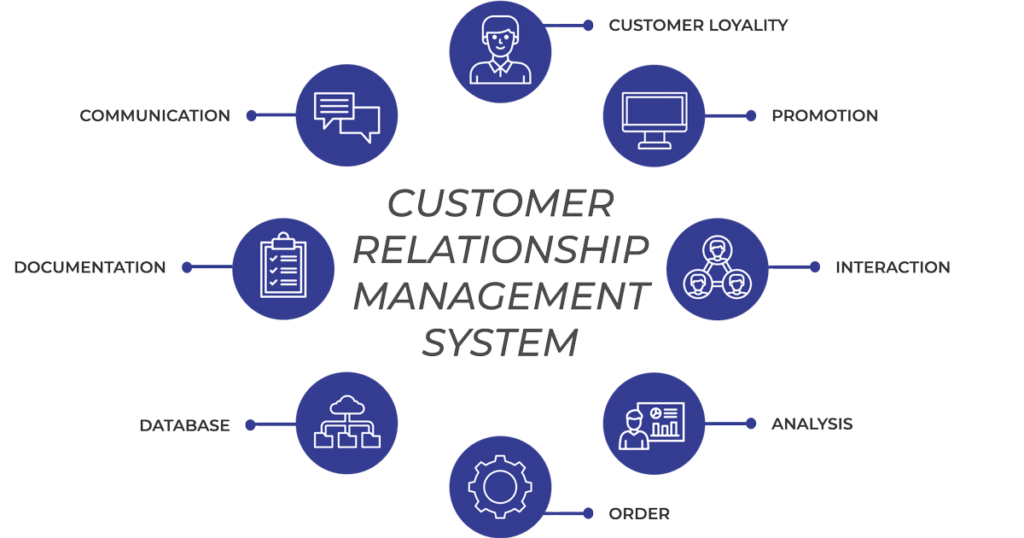
To get a clear idea of CRM, let’s clarify what it stands for first. CRM Is short for Customer Relationship Management and is quite literally focused on customer relationships. It’s an approach that makes complete sense in today’s business world, as good customer relations are vital for retaining and acquiring customers.
CRM is a holistic software solution that is used for planning, controlling and implementing all interaction with customers. Its goal is to organise and support all phases of account management. The CRM system collects information on existing or potential customers across business departments (e.g. phone calls or e-mails), structures the information gathered and gives a comprehensive overview. It provides a systematic way to use the company’s continually growing knowledge about customers and their needs to achieve an optimal customer-centric focus. Knowing about the customers’ history also makes for better communication in the future. Basically, it is an efficient and uncomplicated approach to tracking the entire customer journey – from the initial enquiry through to the final sale.
A CRM system can thus help companies to stay in touch with their customers, optimise their processes and increase profitability. In a nutshell, the goal of CRM is to improve business relationships on every level of the company, from marketing to customer service.
And what is ERP?
Let’s start off again by explaining the abbreviation. ERP stands for Enterprise Resource Planning.
An ERP system can be used to connect all of the processes that are required to run a business successfully. It is a hub which links the different departments’ systems so relevant data can be accessed and shared easily across the company. Depending on the business and its needs, the ideal solution may be one ERP system or a combination of separate ERP modules.
ERP systems are geared towards ensuring a smooth and quick flow of information within the company. An inter-divisional connection between manufacturing, supply chain, finance, human resources and other departments can help you to see the bigger picture. But ERP systems can also be used for purposes such as cost reduction, operational improvement and business expansion. Using the latest technology, modern ERP software can even provide additional insights into how to boost efficiency within your company.
What is the difference between ERP and CRM?
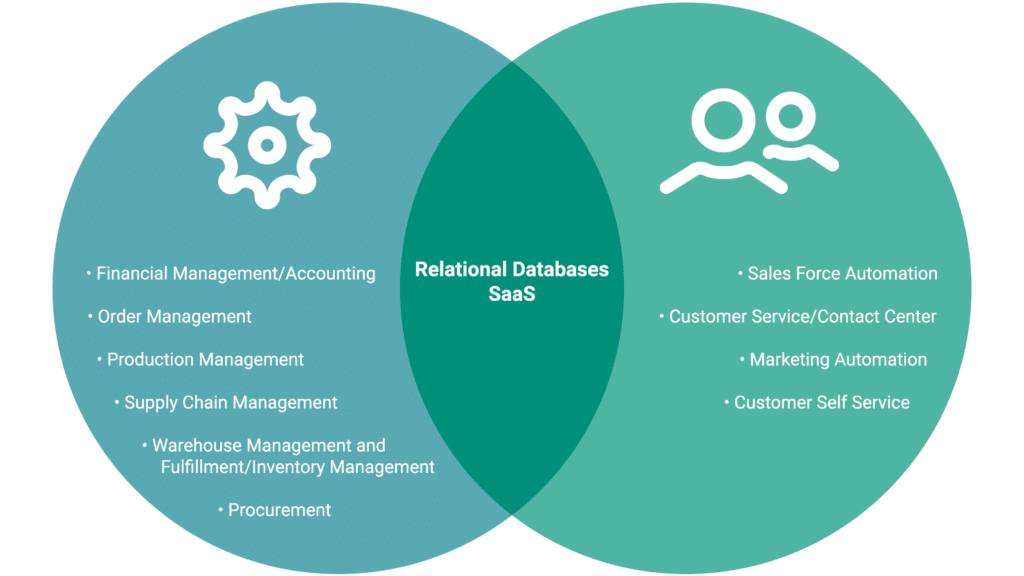
CRM and ERP systems are based on different concepts, but there are a few similarities:
- CRM and ERP share some of the same basic ideas
- Both are built around a network that connects data from different company divisions to improve accessibility
- ERP and CRM can be handled on the company’s premises or via a cloud solution
And what are the key differences between ERP and CRM?
- The main difference is that ERP is primarily used for financial data by finance units working in the back office
- CRM is used for customer data by sales and customer service units in the front office
Wouldn’t it be great to combine the best of both concepts?
Sooner or later, most growing businesses feel the need for ERP and/or CRM solutions within their company structure. When using simple tools and software or even spreadsheets to manage accounts and large amounts of information and data, any company will eventually reach its limits. Depending on your business model, ERP or CRM systems can be very helpful and time-saving solutions pretty much from the start.
Adopting an approach that combines ERP and CRM system will result in the highest possible efficiency. When ERP and CRM systems share data, your business and staff can profit from the advantages of both concepts while choosing the best approach for their individual work area.
envivo.io can help you to build a bridge between ERP and CRM systems to ensure optimal results.









